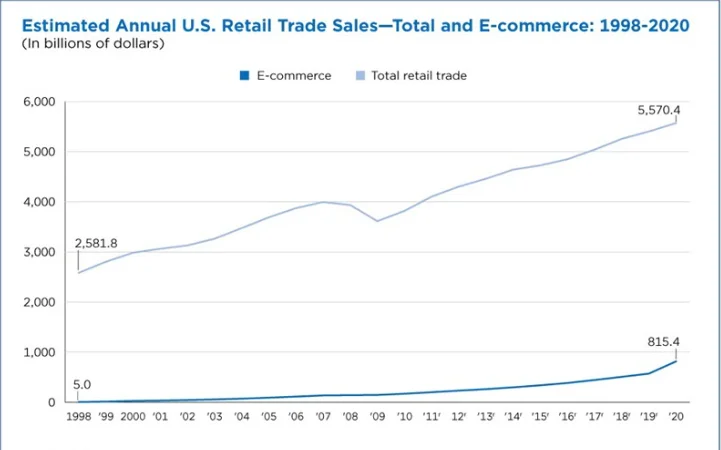In 2020, the average US adult spent 3 hours and 43 minutes on their mobile devices. This shot up to 3 hours and 54 minutes from 2020 to 2022. On an average, customers check their mobile phone 58 times a day. Let’s put this in perspective- customers today spend almost a fourth of their waking hours on their cellular device.
The pandemic was the catalyst that changed the course of consumer behavior, accelerating the adoption of digital tools. As customers embrace the online world via their mobile devices, brands would need to update their customer service techniques to adapt to these changes.
What is a Whatsapp and a Facebook Messenger Survey?
A Messenger survey is a type of survey that is conducted via instant messaging applications including WhatsApp and Facebook Messenger. This type of survey allows businesses or individuals to gather feedback from their customer base swiftly and in an interactive way.
Merren can help businesses create messenger survey using the robust tools that can help customize surveys as per requirements. The surveys can be delivered to the audience via Whatsapp and Facebook Messenger all of which is conversational in nature. Additionally, users can also opt for existing templates of survey questions or create their own set of questions.
Messenger surveys are a brand new way of collecting customer feedback using quick questions that are conversational in nature. These surveys can be created and launched on android and iOS platforms. The results of these messenger surveys can be analyzed in real-time, providing valuable insights into audience preferences and behaviors.
Here are 5 customer service puzzles that brands would have to solve in the emerging era.
1. Brands need to actively serve and engage customers who visit stores less and buy more online:
As per the United States Census Bureau, ecommerce sales sky-rocketed from $571.2 billion in 2019 to $815.4 billion in 2020.
In store sales dropped since there was no requirement for people to travel or attend events or in-person meetings. This also includes losses for physical bookstores from lack of footfalls.
However, brands such as Zoom Video, Amazon, Netflix and Apple benefitted from this unforeseen shift.
Over years, brands perfected the in-store experience management for their customers. With the bulk of the store traffic moving online, brands would have to revisit their strategies in totality. Be it email survey or surveys via messenger polls, the strategy is to to manage and measure overall customer experience.
2. Brands need to manage service levels when the customer-connect is handled by a third party:
The best brands in the world today depend on Amazon and other ecommerce platforms to deliver their products. Amazon, in turn, depend on their logistics partner to make those deliveries. Restaurants and cloud kitchen depend on food delivery companies such as UberEats, Door Dash, Zomato and Swiggy to deliver their products. Most mature markets such as UK, Canada and Australia saw a fourfold increase in online delivery. The US market witnessed a two fold increase such that the current markets are seven times larger than they were in 2018.
With such tectonic shifts, brands need to engage and collect feedback via in-app or Facebook Messenger surveys to make sure that they service standards are maintained.
3. Brands manage brand reputation in an always connected world:
There are two fastest things on earth- one is the cheetah on land. The second is an unhappy customer ranting about a poor customer service on social media.
69% of the US adults access Facebook daily. Tiktok usage in the US has surged over last few years, making it the fastest growing app. About 500 million Tweets are sent out in a day.
Managing brand reputation requires not just quick redressal, but also an active prevention of service failures. Brands perform well when they consistently measure, manage customer experience and predict potential threats to reputation before they become a crisis.
4. Brands stand out in a world that is full of technology, but customers seek a human connection:
We can agree that automation is a great way to attend to customers. Nevertheless, human-to-human interaction and personalized customer attention will never go out of fashion. If anything, the human touch is what will help brands create genuine connections with their customers.
Brands would have to find ways to avoid sounding like a chatbot. Customers need to feel that they are talking to a human and not a machine. Seeking data and feedback from the customers should feel like a conversation and not an automated list of questions. Using the messenger app that the customers already use and engage on would be an ideal way to reach out to your target respondents.

5. Brands need inculcate a culture of customer service in employees who work remotely:
One of the key reasons why brands like Apple enjoy an incredibly high net promoter score (NPS) has been their ability to drive customer service as a part of their organizational culture.
But the world has changed over the last few years. The new normal is now a hybrid working culture. Around 21% of surveyed workers mentioned that they felt anxious about returning to the workforce.
A lot of culture in a large organization is diffused through osmosis- new employee see their seniors interacting with the customers and learn. With this, it is no longer possible due to remote or hybrid work, the challenge for the brands is to ingrain the customer centric culture.
What are the key benefits of using messenger apps to conduct messenger survey?
Ultimately, the main aim is to capture customer insights using platforms that are real time and a new way is to deploy chatbot and Facebook Messenger survey. This will overcome communication barriers that often happen via traditional mediums. Messenger apps are a great tool to launch quick questions to your targeted respondents. They are personalized, in-moment, bring higher response rate and are incredibly cost effective way of collecting rich insights.
Do you want to hear from your customers better and faster? Try out 14 day free trial platform! We make it easy for brands to run conversational surveys that customers love to respond to.






